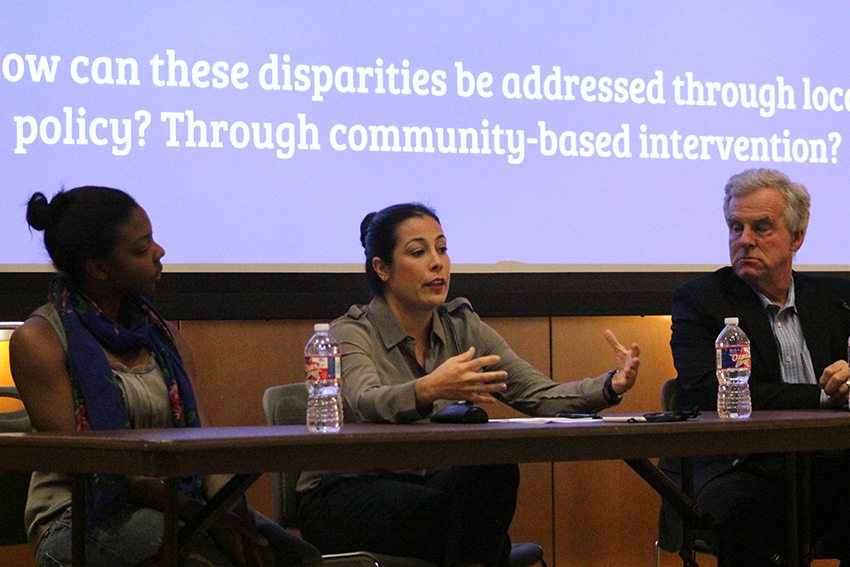GlobeMed, a group of students passionate about issues regarding healthcare, hosted a panel Monday at the Student Activity Center to discuss the social inequity of healthcare in Austin.
The panel, titled “World Café,” aimed to provide students a space to talk about how this issue impacts them and their community.
“This year, we wanted to focus on how social injustice occurs at the local level and how themes of inequality overlap at the local and global levels,” said Michelle Zhang, a neuroscience senior and GlobeMed global health university coordinator.
Gabriela Torres, a public health specialist, said many individuals on the lower socioeconomic spectrum and minorities, including students, are less aware of the brevity of different sexually transmitted diseases and feel they are not able to voice their questions and concerns.
“There a lot of people coming in from Central and South America who, if they’re itching down there, don’t talk about that,” Torres said. “There’s language barriers too. English is not their first language and their children are translating for them. People are not willing to talk about sexuality with their children as translators.”
Following an audience-based discussion, Richard Nauert, an adjunct associate professor for the School of Human Ecology, spoke about how innovative healthcare technology, such as telemedicine technologies, could be used to advance healthcare and increase access to healthcare to individuals on lower socioeconomic levels.
“The new future is to try to help people be healthier and use technology to do so,” Nauert said. “One of the big access problems is either not enough doctors or specialist or primary care. We can use telemedicine to tackle many of these disparities.”
Dell Medical School student Whitney Williams concluded the panel by discussing the medical school’s approach to addressing healthcare issues and access in Austin.
“We have community partnerships and are here for the community,” Williams said. “We are going to take care of Austin first and use that as a model for healthcare improvement and change for the nation.”
Besides fostering an atmosphere for students to openly discuss different health care issues, UT’s GlobeMed chapter also hopes to fundraise for their partner organization, Wuqu’ Kawoq, in Tecpan, Guatemala, and educate the greater student population about these issues.
“Everyone has a distinct perspective, personal narrative and field of expertise to bring to the table,” Zhang said. “When merged together, these ideas can empower students to be leaders in social change.”





















